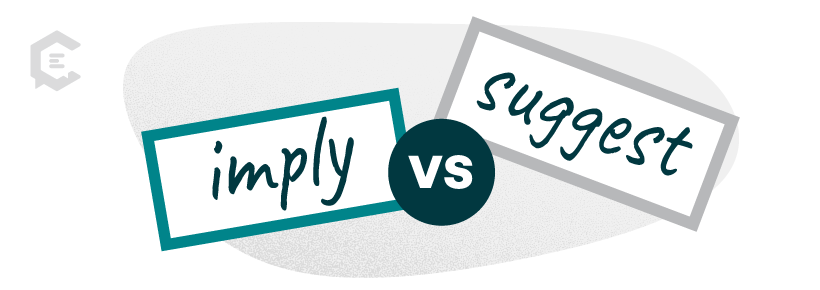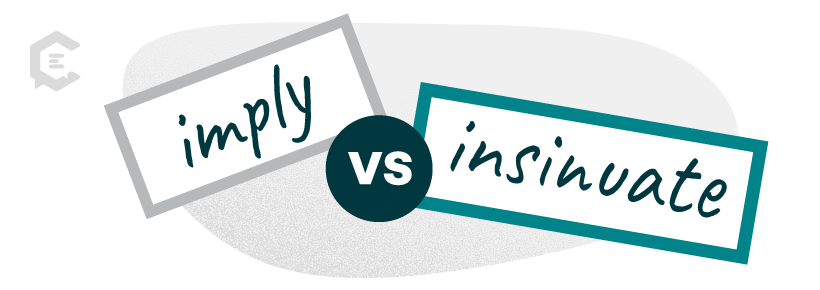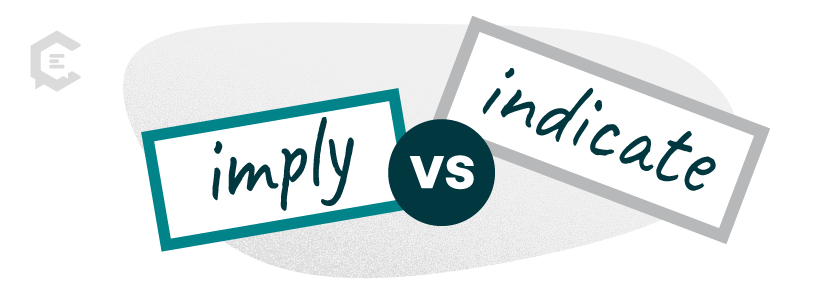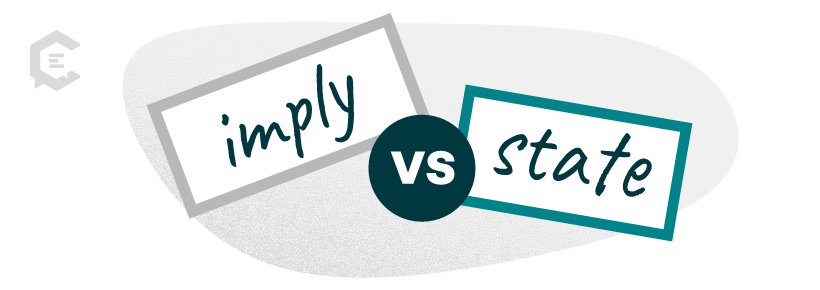We’ve all been there – You’re on a roll writing your latest piece, in the midst of a sentence, and suddenly you think… “What word goes here?” “Wait, are these words synonyms?”
As a business owner or content marketer (or both), you have a never-ending stream of words running through your brain. It’s understandable to mix them up sometimes when you’re constantly creating assets like blog posts, email newsletters, videos, and much more.
One word that can get mixed up a lot is “imply“. Imply is a verb meaning to indicate or suggest without stating explicitly. Though “imply“ doesn’t have a tricky counterpart like “compliment“ and “complement“, there are still a lot of words it can be confused with. Some of these can lead to serious miscommunications, so let’s explore a few.
In this article, we’ll tackle imply vs. infer, along with the other most common words they get mixed up with, to help you create clear and clean marketing materials and communications.
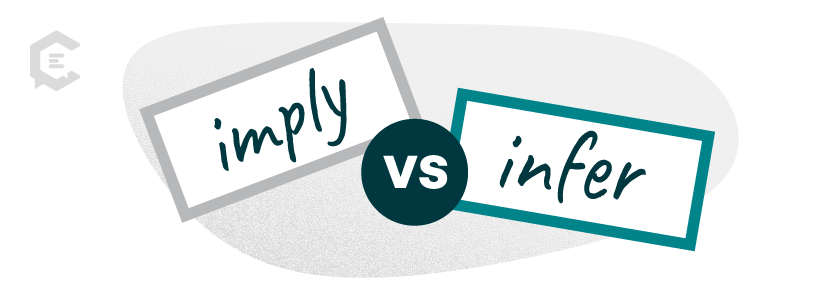
Imply vs. Infer
Though these two words are often confused, they’re actually almost opposites. To imply is to say something without stating it directly; it is the action of a writer.
Example: She never asked for a cupcake, but her constant glances toward the plate implied that she wanted one.
On the other hand, to infer is to come to a conclusion about something that has not been directly stated; it is the action of a reader.
Example: Though she hadn’t asked for one, I could infer from the look on her face that she wanted a cupcake.
Imply vs. Suggest
Imply and suggest are more similar in meaning, but you still can’t use them interchangeably. To suggest simply means to introduce for consideration; this can be direct or indirect.
Example: If you’re traveling through Tallahassee, I suggest stopping at Hopkins Eatery for lunch.
This suggestion is direct, whereas implying is indirect.
Example: By saying that Hopkins has the best sandwich in town, he implied that they should stop there for lunch.
Imply vs. Insinuate
These two are tricky because their difference depends heavily on connotation. Both actions say something indirectly, but to insinuate means to suggest or hint slyly. This word generally takes on a negative connotation.
Example: When you question what she was wearing, you insinuate that it was her fault.
Imply, however, can have a more neutral connotation.
Example: The existence of a painting implies the existence of a painter.
Imply vs. Indicate
Another set that might be confused despite their vastly different meanings is imply and indicate. While imply, as we know, means to state indirectly, to indicate means to point out or to state or express. It is much more direct and doesn’t require a conclusion on the reader’s part.
Example: The teacher wasted no time on mystery; when asked about his favorite student, he indicated to me.
When implying, you’re showing rather than telling.
Example: Though the teacher couldn’t show favoritism, he implied it when he praised one student more than the others.
Imply vs. State
State is even more direct than indicate. To state is to declare definitely or specifically. Something stated is straightforward, with no room for interpretation.
Example: The journalist worked hard not to show any bias in her article; she only stated facts.
Something implied, on the other hand, is indirect and requires interpretation in order to be understood.
Example: Though the reporting was supposed to be unbiased, her tone and word choice implied her opinion on the case.
Take Your Writing to the Next Level
The marketer’s life is a challenging but rewarding path. Ensuring you’re always using the right words keeps your content professional and high-quality.
Need a little help? At ClearVoice, we have a vast talent network filled with talented writers with niche industry experience. Connect with a content strategist to learn more and get started outsourcing your writing needs today.

